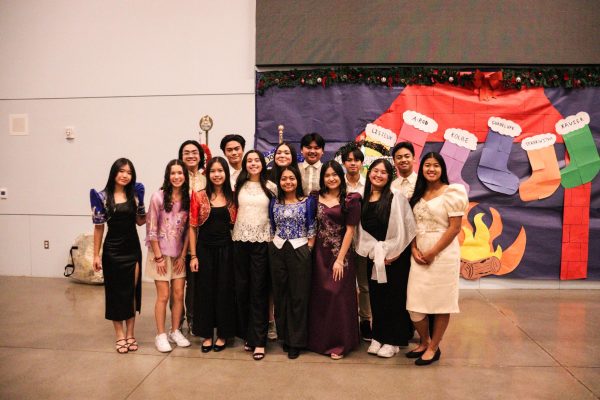One of the most beautiful things about Christmas on campus is the wide-range of festivities to partake in. From Adopt-A-Family to spirit week and door decorating, there is never a dull moment. Along with these events, many important cultural celebrations take place, a notable one being Simbang Gabi.
Meaning “night mass,” Simbang Gabi is a Filipino Christmas celebration consisting of nine days of Catholic masses. The tradition is characterized by not only its religious meaning, but also its colorful parols (lanterns) and its lively salu-salo (reception) following mass.
This tradition was brought to Bellarmine in 2017, as a result of the established host-parish being unavailable. Though initially a small and unintentional event, a few faculty members recognized the celebration’s beauty and sought to keep it alive in the following years.
Under the leadership of alumni teachers Jeanne Hanigan, Jody DeGroot, and Jennifer O’Loughlin, the BPS Simbang Gabi grew to include a larger mass, music ministry, and reception with food donations and local businesses involved. As student participation and interest grew, the Novena mass came to include more affinity club leadership, which has continued into the 2023 iteration co-hosted by Asian Pacific Islander Club and Filipino American Student Association on Dec. 12.
The importance of Simbang Gabi to Bellarmine’s Filipino community is undeniable. One senior organizer of the event, Bong Bong Barro, says, “It means a sense of kapamilya—family.”
Aires Patulot, the Campus Ministry Director, explains why he values this tradition saying, “I find it really inspiring when our culture and our faith come to life.”
For many students, Simbang Gabi is a nostalgic celebration inseparable from faith and family. Corinne Joyce, a freshman participant in Simbang Gabi, explains the influence of the Novena on her life, with her mom being a long-time organizer: “[I] grew up around Simbang Gabi and all the music.” Joyce continued, “I love introducing Filipino food to my friends,” saying the mass and reception should be inclusive of all people, to provide an opportunity for cultural appreciation.
Though initially an event hosted out of necessity, Simbang Gabi has grown to be one of the most widely appreciated and attended Christmas celebrations on campus. Over 100 students and their friends and families congregate at the St. Aloysius Chapel every December to participate in the lively tradition.
Among the students and faculty involved, one sentiment is clear: the Novena mass represents a larger sense of community on campus. Barro expressed his hope for the future of Simbang Gabi, saying, “I hope that this tradition remains alive for the years to come, especially for the next generations of lions.”


